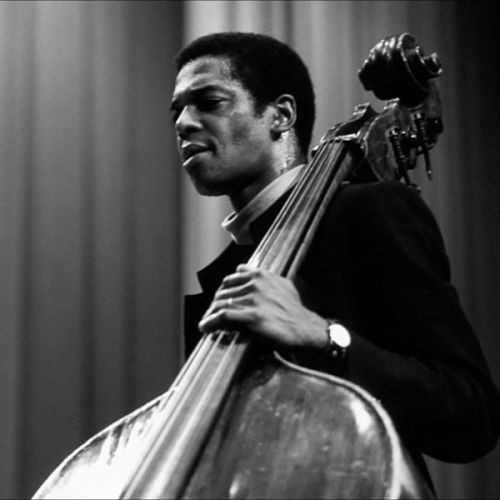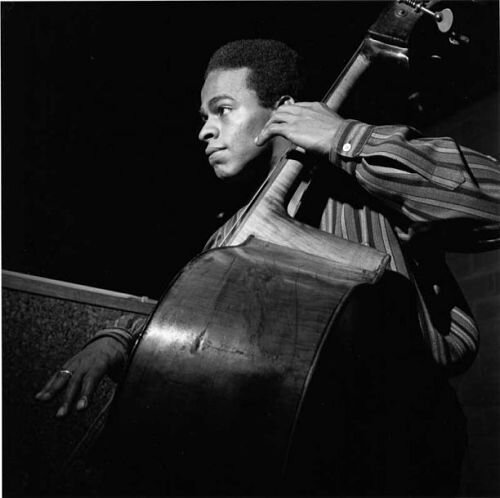Jimmy Garrison (John Coltrane, Elvin Jones)

By Thomas Semioli
A master supportive and countermelodic player with an earthy tone, Jimmy Garrison is most noted for his 1961-66 association with John Coltrane – especially A Love Supreme (1965) wherein his repetitive opening motif is among the most recognized bass passages in recorded music.
Garrison came to prominence on the Philadelphia jazz scene in the 1960s, where such bassists as Reggie Workman and Henry Grimes were his peers. Garrison would eventually go on to replace Workman in Coltrane’s ensembles. Jimmy also waxed sides with Ornette Coleman: Ornette on Tenor (1962), New York Is Now (1968), Love Call (1968) and The Art of Improvisors (recorded 1959 and released in 1970).
A composer and collaborative recording artist with Elvin Jones, Garrison provided the solid anchor for his soloist’s harmonic and rhythmic explorations. Aside from Trane and Ornette, Jimmy waxed exceptional sides with Archie Shepp, Sonny Rollins, Bill Evans, Larry Coryell, and Alice Coltrane, to cite a few.
Jimmy Garrison Sound & Vision…
John Coltrane “A Love Supreme” Pt. 1 “Acknowledgement” https://youtu.be/TMvbUKqWYEs
Ornette Coleman “Cross Breeding” https://youtu.be/7Z70ajQNMJg
Alice Coltrane “Lovely Sky Boat” https://youtu.be/rhmwChxResw
Sonny Rollins “East Broadway Rundown” https://youtu.be/-hHXhnKEmpM
The Elvin Jones Trio live with Jimmy Garrison and Joe Farrell https://youtu.be/p1FlNbFc3EM
Elvin Jones and Jimmy Garrison “Half and Half” https://youtu.be/5iT53h0iHww

